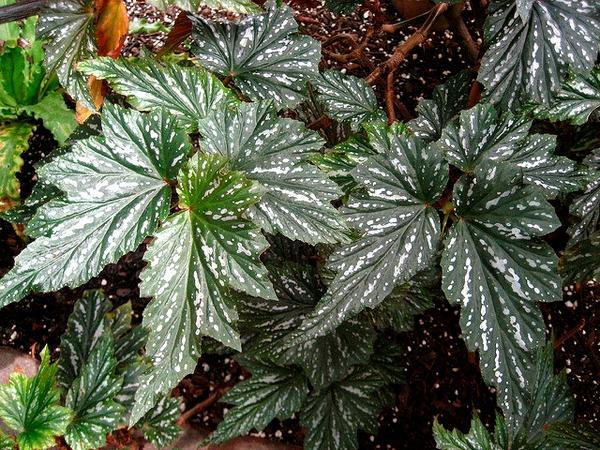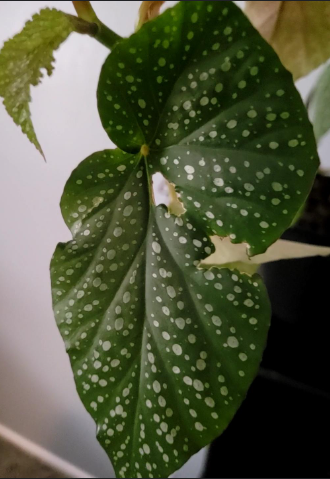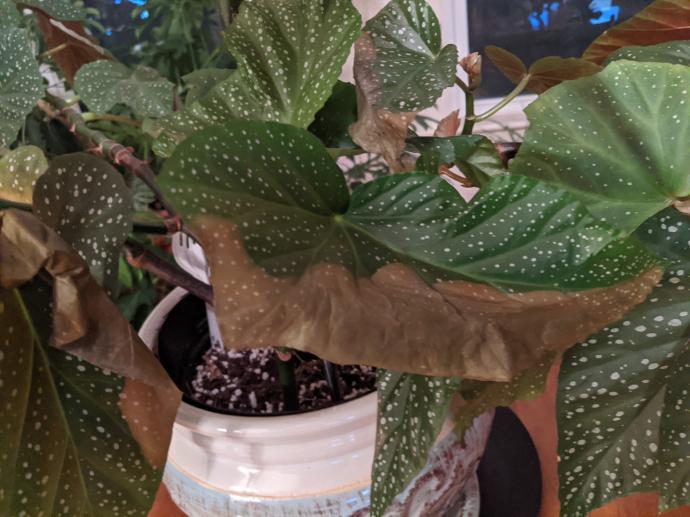Angel Wing Begonia Plant
Angel Wing Begonia (Begonia coccinea) is a tropical plant growing 1-3 feet tall, hardy in USDA zones 10-11, with fast growth in well-drained, loamy soil, requiring indirect light and medium moisture, and it is neither edible nor medicinal.

Habit
Tropical
Height
1-3 ft
Growth
Fast
Soil
Well-drained, loamy
Shade
Indirect light
Moisture
Medium
Edible
No
Medicinal
No
Origin
South America
Climatic Condition
Tropical, Humid
Temperature (°)
18-25
Humidity (%)
70-80%
Potting media
Peat+Perlite
Fertilizers
Balanced NPK(10:10:10)
Watering
Regular, Moderate
Plant Weight
50-150 g
Flowering Time
Year Round
Soil Ph level
6.0-6.5
Water Ph level
6.0-6.5
Soil EC
0.5- dS/m
Yield Per Plant
Low Yield
NPK ratio
10:10:10
life Span
2-3 yrs
Health Benefits
Suggested Grow Media or Potting Mix ?
40% peat, 30% perlite, 30% compost
Suggested Fertigation/Fertilizers
Fertilize every 2 weeks with a balanced fertilizer.
Common Diseases and Remedies
Prune affected parts, use neem oil, improve soil drainage
HEALTH BENEFITS
Angel wing begonia (Begonia coccinea) is primarily grown as an ornamental plant, but it may offer some indirect health benefits, including:
- Air Purification – Like many houseplants, begonias can help improve indoor air quality by filtering toxins and increasing humidity.
- Stress Reduction – Caring for plants has been linked to reduced stress, improved mood, and better mental well-being.
- Aesthetic and Therapeutic Value – The plant’s attractive foliage and flowers create a calming, visually pleasing environment, which may contribute to relaxation and productivity.
- Mild Antibacterial Properties – Some begonia species have been traditionally used in herbal medicine for mild antibacterial and wound-healing properties, though scientific research is limited.
While Angel wing begonias are not commonly used for medicinal purposes, they can contribute to a healthier indoor space and overall well-being. However, they should not be consumed, as some begonia species contain oxalates that may be toxic if ingested in large amounts.

